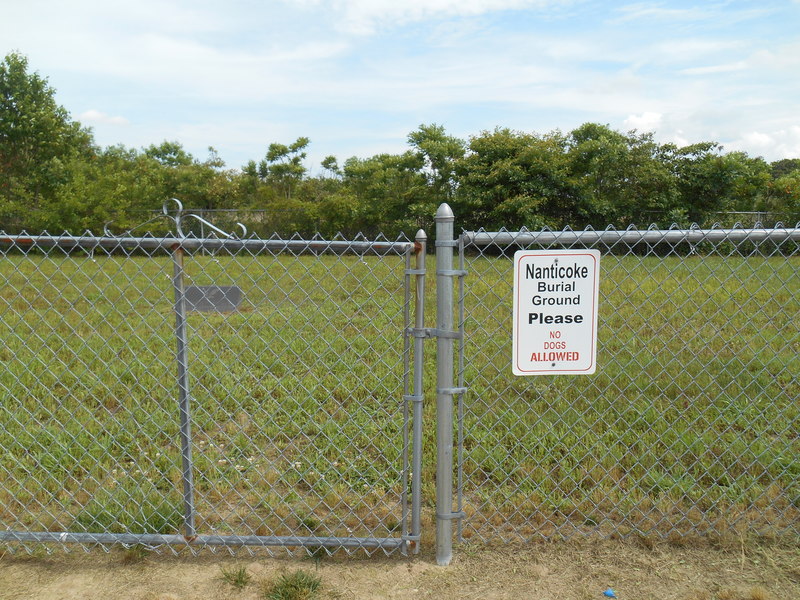Cleanup plan set for Jackson Pit Brownfield in Lewes

A new cleanup plan for an old dump site in Lewes calls for removing decades' worth of debris to pave the way for new development.
The Jackson Pit site, a designated Brownfield behind the Lewes Home Depot and neighboring Eagle Point subdivision, contains decades' worth of household and lumber debris, which officials say will soon be excavated, making way for an apartment complex that has been in the works since 2008. The proposed complex – the Arbors of Cottagedale Apartments – was approved in 2010, pending cleanup of the Jackson Pit site.
Arbors developer CB Lewes LLC will pay for the cleanup, as part of the agreement with the state's Voluntary Cleanup Program, said Timothy Ratsep, administrator of the state environmental agency's Site Investigation and Restoration Section. Landowner Robert Campbell said it's unknown how much the cleanup will cost, and that specific details regarding how the waste will be removed and where it will be deposited have not yet been developed.
Starting in the 1960s, Jackson Pit was used as a borrow site, where people excavated dirt and sand for other uses, until a big hole was left behind. When the usable material was gone, the borrow pit became a place for dumping household debris, starting in the 1970s until 1982, a common practice at the time, Timothy Ratsep said.
“People just dumped stuff anywhere,” he said.
From 1983 to 1993, the site was approved by the state Department of Natural Resources and Environmental Control for dumping tree stumps, masonry debris and lumber. When that ended, the trash-filled hole in the ground was covered with dirt, Ratsep said.
A DNREC evaluation confirmed the waste left behind is household and lumber-related, with the major environmental concern being the release of methane from the decomposing wood debris, Ratsep said.
“A lot of the municipal trash is in trash bags, so it's not decomposing,” he said. “The driver here was the methane.”
Ratsep said investigations also found an area of PAHs – polycyclic aromatic hydrocarbons – which are incombustible chemicals, similar to charcoal, he said, and some metal contamination in groundwater samples. The small area containing PAHs was removed, he said.
Seven groundwater samples also found arsenic, cobalt, iron and manganese, all at levels below risk to human health.
“There is going to be a restriction on the site that no one can put any drinking wells out there,” Ratsep said. “All homes on this property would need to be connected to public drinking water sources.”
Former cleanup plans proposed sealing the pit with the debris intact, and installing ventilation systems so that methane could be released, as well as the stipulation that no wells could be installed, Ratsep said.
“The development plan had the building on top or adjacent to some of the waste material, which then requires venting because you don't want any explosions,” he said. “The plan now has all the material being removed offsite.”
The Jackson Pit site has been reviewed by DNREC since the late 1980s, Ratsep said. In 1988, the state department reviewed the site to ensure it contained no additional debris other than household waste, followed by a groundwater evaluation in 1997 and further investigations relating to soil and gases from 2010 to 2014.
“There's been quite a few different investigative works over the years to get us to this phase of the remedial process,” he said. This is the third remediation plan for the site.
In 2008, a site plan for the proposed Arbors of Cottagedale Apartments was submitted to state and county agencies. The site plan initially called for 216 residential apartments on 18 acres, including construction directly on top of the Jackson Pit borrow site.
Sussex County planners and council members approved the controversial apartment complex in 2010. The project was the first approved under the county's affordable rental housing program, providing 26 affordable units among a total of 168 rental units – a 23 percent reduction from the original 216-unit request. Approval and construction were contingent upon clean up of the Jackson Pit site.
According to the Brownfield certification for the property, the developer is listed as CB Lewes LLC, and the company's environmental consultant is Brightfields Inc. of Milford. The company contact listed on the certification is landowner Robert Campbell, who said more approvals are needed before work can begin.
Campbell said while the remediation plan has been approved, a working plan outlining exactly how the site will be cleaned has yet to be developed and approved. Ratsep said the cost will depend on those specific cleanup details, including which permitted disposal facility – it could be in-state or out-of-state – will take the waste after it is removed from the site.
Campbell said he hopes the cleanup will begin within the next couple months, dependent upon state and county approvals. He said he is unsure how long it will take.
Once the waste is removed from the Jackson Pit site, Ratsep said, there is no risk to current or future residents in the area. The only site restriction is that the developer will not be permitted to install groundwater wells.
“This was great news that the developer wants to take the material offsite so there's no long-term concerns,” he said. “This is going to meet residential use.”






















































